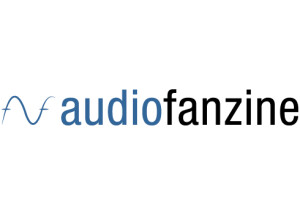October 18, 2014 editorial: comments
- 11 replies
- 6 participants
- 3,108 views
- 6 followers
Mike Levine
Don't Lose Your Dongle
I just finished installing and authorizing a piece of music software, and it got me to thinking about the issues of software piracy and copy protection. First, let me say that I’m totally against the use of cracked software, or stealing of software in any way. In addition to the moral issues related to piracy, it can cause software developers to lose significant revenue and even go out of business. With less software developers there will be less competition, fewer choices, less innovation, and higher prices. So next time somebody offers you cracked software, I would strongly advise you not to take it.
To fight piracy, software companies use copy protection systems of various types. Some of these are better than others. Dongle-based protection systems, most notably the iLok, are used by many developers. Other systems directly authorize your computer: you submit your serial number on the company website and get sent an activation code, or get authorized via a proprietary license manager application.
Given the amount of hackers and software thieves that exist, I don’t begrudge companies the need for copy protection. What I don’t like is when it becomes needlessly burdensome for the user. For example, we’ve all probably had difficult experiences trying to get software authorized — either do to unclear instructions or convoluted authorization processes, such as where you have to type in 20-25-digit codes without being able to copy and paste.
Then there’s the issue of dongles. For those using desktop computers exclusively for their music work, a dongle is fine, Plug it into a USB hub and forget about it (I once got software with a dongle that had to be connected via the computer’s onboard USB ports, rather than a hub, and that was infuriating.) A dongle-based system is also good for those who might need to run their software or plug-ins on computers other than their own.
One thing’s for sure, if you carry around a laptop, a dongle can be a real pain – it's just another thing to remember and to possibly lose while traveling. Not to mention that it takes up a precious USB slot, and when it's plugged in it protrudes from your laptop in a way that makes it more likely to get knocked into and possibly broken.
I recently did a software installation where I was given the choice, to authorize on my iLock or directly to the computer. I authorized my desktop computer via iLok and my laptop with direct authorization. Having the choice was a welcome surprise, and I wish more companies would do that.
What are your thoughts on the copy protection issue, and which do you prefer: a dongle-based protection scheme one or one that authorizes your computer directly?
Have a great week.
Mike Levine
U.S. Editor, Audiofanzine
- 1
- 2
Mike Levine
I understand companies need to make money, but I'd rather it would be through true innovations that add real value to the end user, instead of by creating a new file type or format that renders all previous versions and recordings useless.....
I agree that when companies force you into a new format when the existing one is working well (hello Apple), it's very frustrating, and I wish there were more consideration paid to the existing user base when such decisions are made. Sometimes there are legitimate reasons for format changes, but it seems like often the transitions could be accomplished in a way that's more user-friendly, and that doesn't orphan everyone's gear.
Mike Levine
ou see the "pirates" and "thieves" as you call them are the little guys pushing faders on week ends in their rooms. The essence of the clients for those companies are the big guys ( big studios, schools, top producers etc...). Not those small week end wannabee producers. At worst, those companies enjoy a tremendous word of mouth publicity from those "thieves" , propagating the good gospel about this plugin and such and such. Wich later on if they become pros will eventually buy the stuff: like i did.
Stealing is stealing, no matter how you rationalize it. Even if you think the company is evil, taking their intellectual property is not an acceptable — nor productive — way to protest. It harms all of us in the long run, because it causes more onerous copy protection as well higher prices to pay for the extra security. If you don't like a particular company, boycott their software. There are plenty of competitors in virtually every category of music software, and they're mostly not large conglomerates. The best way to influence a company is to vote with your feet, and go to their competitor. I'm not arguing with your premise that users have plenty of legitimate gripes with many software developers, but I am taking issue with your solution.
- < Thread list
- Rules
- 1
- 2

